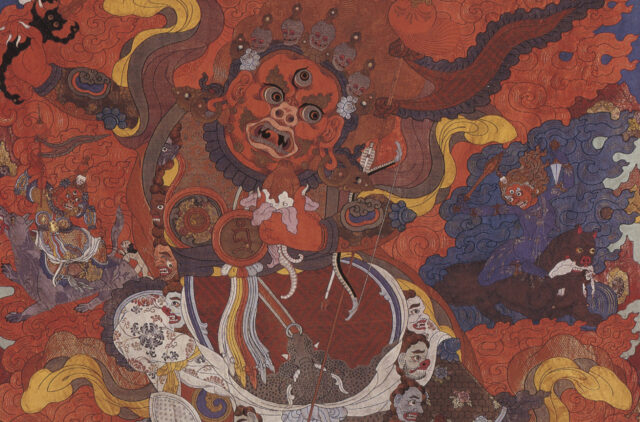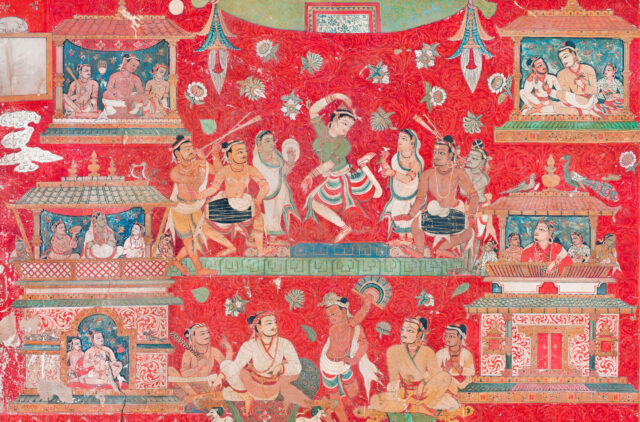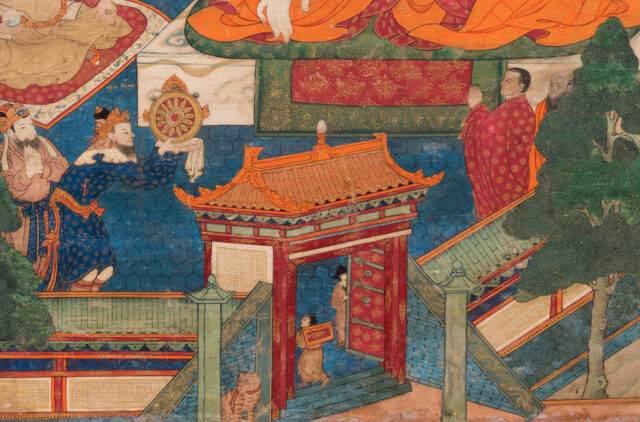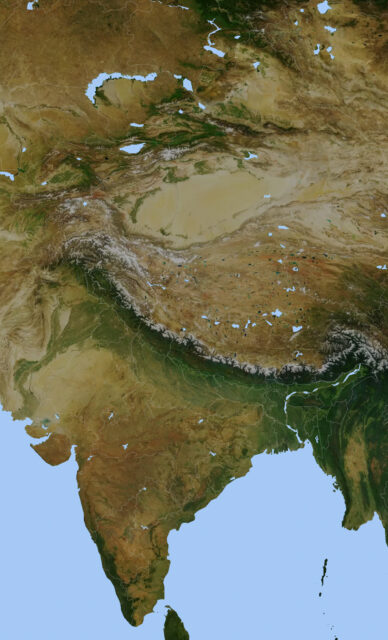Stay connected. Sign up for the Rubin Museum’s monthly newsletter to receive updates about upcoming exhibitions, programs, digital features, and more.
SubscribeHinduism
Hinduism
Hinduism is a collection of religious beliefs and practices comprising a major Asian religion, practiced principally on the Indian Subcontinent and parts of Southeast Asia. Although certain practices may have their roots in the ancient Indus Valley civilization (~3300–1300 BCE), the earliest decipherable texts of Hinduism are the Vedas, ritual-mythological hymns and instructions for fire-sacrifice from around 1500–900 BCE. From around 800 to 300 BCE, new thinkers emphasized philosophical ideas like ritual union with the deity Brahman, or meditation and asceticism in the forest. One of these thinkers was Siddhartha Gautama, the founding teacher of Buddhism. Hindu temples appeared from the medieval period onward, dedicated to gods like Brahma, Vishnu, Shiva, and Mahadevi. There are also tantric forms of Hinduism, which emphasize transgressive practices and yogic ritual.



